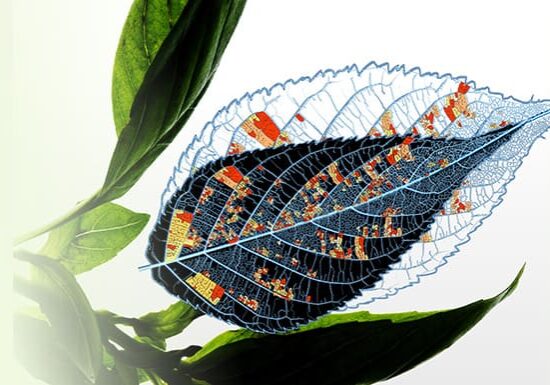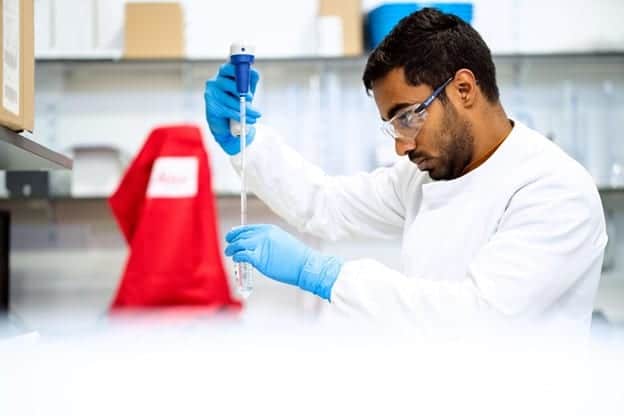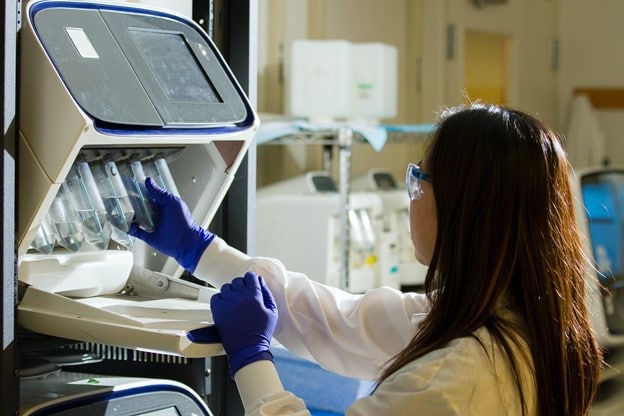What Is Synthetic Biology And Why Should You Know About It?
Updated: January 27, 2023
Published: June 9, 2021

You may have heard the term ‘synthetic biology’ before when referring to the branch of science that works with redesigning biological components. The field itself is relatively new and exciting since there are always new advances and discoveries being made.
If you’re interested in learning more about synthetic biology, such as what it can do, its implications, and some examples of how it works, then keep reading.
Source: Unsplash Alt text: Scientist in a lab working on synthetic biology
Synthetic Biology Defined
First things first, just what is synthetic biology?
Synthetic biology combines science and aspects of engineering in order to redesign organisms. The purpose of tinkering with organisms is to advance scientific research in fields like medicine, agriculture, and even manufacturing.
In synthetic biology, scientists will work to recreate an existing biological system, or they’ll create and redesign new biological elements like cells, enzymes, and other genetic circuits.
Recent progress in the field of synthetic biology was made possible by more recent technologies, namely DNA sequencing and synthesis. With these two technologies, scientists have been able to deepen their understanding of the natural systems through sequencing, and then are able to try new designs using synthetic parts with synthesis.
What Can Synthetic Biology Do?
Synthetic biology can be used for a few different purposes in fields such as medicine and agriculture. In order to gain a better understanding of its capabilities, it’s ideal to take a look at some of synthetic biology’s achievements to see what it can really do.
Some common goals among synthetic biologists are to create a substance or even to make a substance gain new abilities.
Here are ways they’ve done this in the past:
- Beta-carotene, a vitamin usually found in carrots was added to rice. Since beta-carotene prevents Vitamin A deficiency which causes blindness in hundreds of thousands of kids each year, the addition of this vitamin to rice is a simple way for children to get this nutrient cheaply.
- Rose oil was produced from yeast as a sustainable solution that can replace the scent of real roses.
- As global pollution rates rise, scientists are looking for unique solutions to this worldwide problem. Microorganisms used for the purpose of bioremediation are being used to clean pollutants out of our soil, air, and water.
Synthetic Biology Goals
Source: Unsplash Alt text: Scientist in a lab working with technology on synthetic biology
Not all synthetic biologists are working towards the same specific goal, however, much of the general method and overall goals are similar. In most cases, synthetic biologists are working towards developing the following:
- Synthetic genomics: The process of designing and constructing new DNA or life forms based on existing life forms or genetic modification.
- Applied protein design: The redesign of certain biological parts in order to enhance, optimize, or change natural protein functions to create new processes.
- Standardize biological parts: The process of cataloging standard genomic parts that are then meant to be used to create new biological systems.
- Natural product synthesis: When microbes are engineered to create a more complex production of natural products using enzymes and certain biological functions.
Synthetic Biology vs Genome Editing
Genome editing is when scientists modify the DNA of an organism, like an animal, plant, or even a human embryo. While both genome editing and synthetic biology are similar in their approach, the methods they both use are slightly different.
In synthetic biology, scientists stitch long stretches of DNA together and put them back into an organism to create the modification. The DNA used here can be from genes that were originally found in the organism, or they can be entirely new.
On the other hand, in genome editing, scientists make changes directly to an organism’s own DNA. This is done using tools that can add or remove small portions of DNA.
The Ethical and Social Implications of Synthetic Biology
You might be familiar with the debate surrounding genome editing and the ethics of “designer babies,” but for the most part, that reflects an extreme of synthetic biology. In most cases, synthetic biology isn’t always as ethically questionable.
However, the ethical questions that do come up have more to do with synthetic biology or genome editing that can trace and remove diseases from genes. While this seems like a positive for society, is it possible that it will be prohibitively expensive and therefore only available to the upper class?
For this reason, scientists need to work together with policymakers and ethicists in order to find the best solutions to the emerging technologies that come from synthetic biology. In order to oversee risky or socially ambiguous scientific research, there have been a number of organizations established to help with this.
Examples of Synthetic Biotechnology Uses
Aside from the examples we discussed earlier to see how synthetic biology works, there have been a number of other breakthroughs in the last few decades.
Let’s take a look at a few more examples of how synthetic biology has been used to improve our world and our lives.
- Scientists are working together with tire companies, such as Goodyear, to create synthetic rubber derived from petrochemicals. Since rubber comes from plants, it is a limited resource, but if scientists are able to duplicate it with synthetic biology, then it will become more sustainable.
- Life Technologies has used synthetic biology to design and test antigens in order to develop vaccines that can be produced more quickly. Normally, vaccine development is time-consuming, but thanks to emerging trends in synthetic biology, the timeline can be reduced.
- Agrivida is using synthetic biology to manufacture sugars from non-food sources. The purpose of this is that sugars can be used for biofuels and renewable chemicals, and the traditional sugar fermentation process uses sucrose from plants, whereas the synthetic one consumes less energy and decreases greenhouse emissions.
These are just a few examples of how synthetic biology is being used to improve our lives. There are many other advances in the fields of agriculture, pharmaceuticals, medicine, and more.
Final Words
Synthetic biology is a new science that is expected to develop and grow over the next few decades as we learn how to work more with it and apply it to get sustainable solutions.
While certain areas of synthetic biology might fall in an ethical grey-zone, for the most part, advancements in the field have led to positive outcomes for society in general.
If you’re interested in pursuing a career in this field, you’ll likely need multiple degrees and a few years of learning, but your investment will surely pay off. At University of the People (UoPeople), we offer a tuition-free online degree in Health Science where you can learn the basics before applying to a more specialized degree or master’s program.


